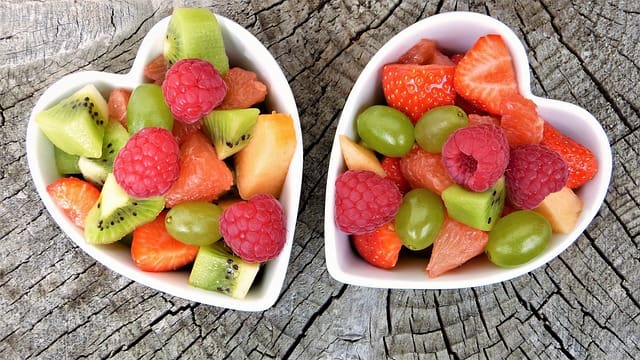Good nutrition is important for everyone, but for people in recovery from a drug or alcohol addiction, it is crucial. Addiction takes a huge toll on a person. It harms the body and brain. To function correctly, the brain and body need a healthy, balanced diet.
How Does Active Addiction Affect Nutrition?
When an individual is in active addiction, their entire focus is on finding, getting, and using
their substance of choice. It is highly unlikely they are thinking about eating a healthy diet or eating at all. Each substance has its specific health effects; for example, opiates can cause anorexia, a decrease in food consumption, and reduced gastrointestinal motility, resulting in malnutrition and an increased risk of the individual getting infections. But all substances impact the body’s ability to get proper nutrients.
Several food-related behaviors common in people with substance use disorders are:
- Eating poorly or not eating enough: Often people with substance use disorders spend all or most of their money on drugs or alcohol. If they have money left, they usually choose foods that are inexpensive and unhealthy.
- Not eating for unusually long periods: It is common for people addicted to drugs or alcohol to go for periods without eating. Some substances like opioids or alcohol can make an individual forget to eat. Other substances, such as cocaine and methamphetamine, greatly reduce or take away a person’s appetite.
- Binge eating: Sometimes, when a person is coming down from a high or is intoxicated, they get extremely hungry. Trying to satisfy their insatiable appetite, they will binge eat and continue eating after they are full.
- Diarrhea and vomiting: These behaviors are common in people with drug or alcohol addiction and increase the loss of nutrients.
Each of these food-related destructive behaviors affects the body’s ability to get the nutrients it requires.
A Balanced Diet
Good nutrition is a key aspect of repairing the harm to the body and brain caused by drug or alcohol use. To function normally, the brain and body need the nutrients in food. Food breaks down into glucose throughout the day, fueling the body. The glucose is released into the bloodstream and is either used as energy or stored for later. To thrive, the body needs a variety of foods. A nutritious, balanced diet provides the body with the essential nutrients it needs: protein, carbohydrates, fats, fatty acids, minerals, vitamins, and water. Good nutrition means maintaining a balanced diet as part of a healthy lifestyle in recovery.
The Benefits of a Healthy Diet in Addiction Recovery
A powerful tool in addiction recovery, a balanced diet provides many benefits. Several effects individuals begin to feel as their body heals include:
- Increased energy
- Improved mood
- Better memory and cognitive functions
- Reduced stress and anxiety
- Restful, deeper sleep
- A more positive and balanced state of mental health
People will also have a strengthened immune system and a reduced risk of diseases and chronic illnesses. Their organ function and digestion will improve.
Good Nutrition Supports Brain Health
The nutrients that help the brain in addiction recovery are the same ones that help the body. Complex carbohydrates, water, fatty acids, and vitamins A, B, C, D, E, and K are all essential for healthy brain function. With proper nutrition, neuroplasticity fosters better brain health. Neuroplasticity is the brain’s ability to change by forming and reorganizing neural connections. Improved brain function allows a person in recovery to learn and retain the coping skills they need to safeguard their sobriety.
Balanced Nutrition Helps Reduce the Risk of Relapse
By improving mood and health, balanced nutrition helps people in addiction recovery feel better, reducing their risk of relapse. MedlinePlus provides seven tips for following a healthy diet in recovery.
- Eat nutritious meals at regular set times. Enjoy healthy snacks.
- For most people, appetites return during recovery, and they may overeat. Eating foods low in fat and avoiding foods with low-nutrition and high-calorie counts, such as sweets, is best.
- Taking vitamin and mineral supplements, including vitamin A, vitamin B-complex, vitamin C, and zinc, during addiction recovery may be helpful. Only take vitamin and mineral supplements if recommended by your healthcare provider.
- Avoid dehydration by having enough fluids during and between meals.
- Make sure to get enough rest.
- Exercise or get physical activity regularly.
- Practice good self-care.
Are You or a Loved One Struggling with Addiction?
Addiction is a chronic brain disease that can affect anyone. If you or someone you care about struggles with an addiction to drugs or alcohol, we can help. Our team of caring professionals at Anabranch Recovery Center in Terre Haute, IN, can help put you on the path to recovery. We offer a range of programs to meet your specific needs, including detox, residential treatment, and a family program. Take the first step toward sobriety. Contact us today.




